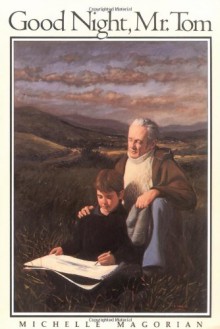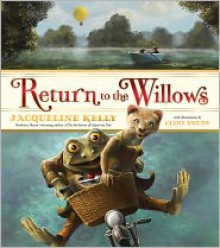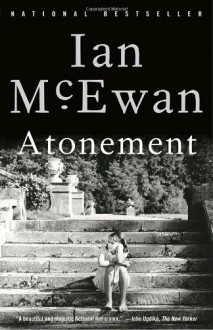
Format: Audio
Narrated By: Kate Reading
Original Publication Year: 1871
Genre(s): Fiction, Classic
Series: NA
Awards: None
This book is on my 100 Books Project list and this is my second in 2014! Progress is tracked here.
Recommended subtitle: A saga of ill-conceived marriages in mid-nineteenth century Britain.
Its actual subtitle that in fact works really well also: A study in provincial life
I did not immediately appreciate Middlemarch. In fact, if I had been reading it in the traditional way rather than listening, I likely would have given up on it early. It’s very long, it has a rather subtle story and I found it hard to engage with the characters in the beginning (they don’t necessarily improve on further acquaintance but they do develop interesting depth). Listening to it in episodic segments, however, it slowly grew on me until I was looking forward to getting in the car and spending time listening to the crazy shenanigans of the Middlemarchians. It was initially published in a serialized form, so perhaps approaching it in this manner is the best way to enjoy. I would have missed out on a very rewarding reading experience if I had given up on it.
As a literary work, Middlemarch is seriously impressive. On the surface, it is an account of everyday life in a mid-sized town in mid-nineteenth century England. Within this account is also an incisive and well observed critique of many of the social conventions of the time. The roles of women, particularly in marriage, but also in society; politics; the responsibility of the rural landowner; and class issues are all addressed, hidden within the mostly mundane, sometimes sensational happenings in the town and its environs.
The book mostly follows the trials and travails of three couples: Dorothea Brooke /Will Ladislaw, Dr. Lydgate/Rosamond Vincy, and Fred Vincy /Mary Garth.
Early on Dorothea and her crazy antics fill most of the pages. Dorothea is young when we meet her, rigid in her religious zeal and naively idealistic. She’s also very beautiful. In pursuit of her idea of a perfect marriage, her as the dedicated help meet to a man accomplishing a great work, she marries a truly unfortunate choice of mate twice her age. Her husband’s nephew Will Ladislaw quickly decides he worships her. Her husband dies after a short miserable marriage and at that point Dorothea decides she returns Will’s love but her first husband’s will has a provision specifying that she loses everything if she marries Will. Scandalous! Will and Dorothea don’t really make sense as a couple considering that they misunderstand everything each other says.
Seemingly the best match in the book for Dorothea would be Dr. Lydgate, a thoroughly modern doctor with an interest in changing the world with his medical research. Unfortunately he only has eyes for the vain, selfish, manipulative and shallow daughter of a local merchant, Rosamond Vincy. They eventually end up married and it goes about as well as you might suppose.
Finally, the equally selfish and lazy, though maybe not quite as mean spirited son of said local merchant, Fred Vincy, has been in love with Mary Garth since childhood. She is actually a very hardworking, practical and intelligent young woman who doesn’t seem to take Fred too seriously. At the same time one of the only other likable characters in the book, who is much more deserving than Fred of a happy ending, Reverend Fairbrother also has feelings for Mary. So who does Mary choose to marry? It isn’t who you might expect.
There are many other characters and plotlines and the occasional treatise about a political happening of the day. You get the idea. It does bog down in places and, as I think came through in my description, most of the characters and relationships made me want to bang my head against a wall but it is a really impressive description and commentary on the everyday life of the time period.
Kate Reading, besides having the best name ever for a reader, has a lovely voice and does a great job narrating.
Final Verdict: Reading episodically and exercising patience were needed but in the end this was a very rewarding and enjoyable book.
I feel like most of the reviews I read were either effusively positive or hateful but I kind of came down in the middle. Anyone there with me? Do you think George Eliot actually liked Dorothea? I wasn't entirely sure...


 Log in with Facebook
Log in with Facebook 









